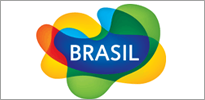Venezuela: Venezuela The Pharmaceutical Market
2011/08/16
THE PHARMACEUTICAL MARKET: VENEZUELA
The macroenvironment will be challenging for pharmaceutical sales in Venezuela. Politically, the President Hugo Chávez is focusing his efforts on the next presidential election, which will take place in December 2012; he can continue running for President indefinitely. Economically, the government announced the devaluation of the official exchange rate for essential imports in December 2010, which will affect pharmaceutical imports. This adjustment started in January 2011.
Projections maxi-devaluations of the bolivar in the forecast period. The rate of inflation, which is already the steepest in Latin America, is expected to rise. Legally, the country revoked Bayer’s patent for the antibiotic Avelox (moxifloxacin) in 2009 and reinstated the 1955 National Industrial Property Law that prevents the patenting of medicines in 2006. Unsurprisingly, the Office of the United States Trade Representative (USTR) kept Venezuela on the Priority Watch List in 2010. Demographically, population growth is expected in the forecast period.
The Venezuelan health system remains financially fragmented and under-funded. The five major health agencies are in the public sector, including the Ministry of Popular Power for Health (MPPS), the Venezuelan Institute of Social Insurance (IVSS), the government of the Federal District (Caracas), the National Armed Forces (FAN) and the Ministry of Education’s Social Welfare Institute (IPASME). The private sector, both charitable and profit-making, is fragmented. The National Assembly approved the Social Security System Law (LOSSS) in December 2002.
The health reform under this social security law is known as the Organic Health Bill (LOS). Different drafts have been presented, but the National Assembly has not approved any draft yet. The latest drafts advocate a health model closer to centralisation and prohibit the participation of the private sector in the new National Public Health System (SPNS); the Barrio Adentro Mission has become a key element of the new SPNS. This bill would reform the current health system by establishing a unified and universal health system.
Inflation rates are expected to remain extremely high in the forecast period, over-inflating the pharmaceutical market in local terms. GDP growth, particularly from 2012 onwards, and population growth are expected to encourage pharmaceutical sales, in spite of drug price controls and currency exchange controls. MPPS will continue to implement Barrio Adentro, but threats in the public sector include government drug imports from countries which co-operate with Venezuela and government pharmaceutical production. Espicom has reviewed its pharmaceutical market projections, and projects the Venezuelan pharmaceutical market to be the third largest in the Latin American region and the fifth largest in the Americas region. OTC and generic sales are expected to increase in the forecast period. There are about 33 pharmaceutical producers, most of which are local. Foreign producers have consolidated their regional operations in other countries in the last ten years, but Bayer, Daiichi Sankyo, Pfizer, sanofi-aventis, La Sante and Teva remain.
- Related Articles
-
South America Broadband and Internet Market
2012/08/16 更多 -
Venezuela Mining Report 2011
2011/08/16 Venezuela Mining Report 2011 The administration of President Hugo Chávez continues to nationalise companies working across the mining sector. Consequently, the operating environment for privately-owned domestic or international companies continues to deteriorate, with government policies serving to drive out foreign miners and investment. -
Venezuela Agribusiness Report
2011/08/16 Venezuela Agribusiness Report -
Venezuela Pharmaceuticals and Healthcare Report
2011/08/16 venezuela Pharmaceuticals and Healthcare Report
- Venezuela News
-
- VENEZUELA: State of emergency declared in Venezuela to counter "US and domestic threats"
- VENEZUELA: Venezuela's socialists threaten opposition's landmark majority
- VENEZUELA: Opposition ends decades of socialist rule in Venezuela
- AFGHANISTAN: Global growth will be disappointing in 2016: IMF's Lagarde
- VENEZUELA: Assessing Venezuela’s Elections: The Good, the Bad, and the Indifferent
- GUYANA: Mexico ready to purchase Guyana rice following Venezuela's refusal to renew exchange accord
- Trending Articles
-
- TANZANIA: Tanzania’s economy is expected to grow by 20 basis points to 7.4 % in 2017.
- ZIMBABWE: Zimbabwe govt moots $100 transport advance as salaries delay
- EGYPT: Egypt's micro-credit NGO lifting women out of poverty
- SOUTH AFRICA: South Africa’s push for renewables
- AFRICA: More than 41 million in southern Africa face food insecurity
- GERMANY: VW says US 'Dieselgate' settlement not to be replicated in Europe






